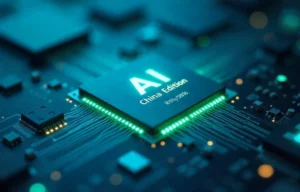

Prefer to listen instead? Here’s the podcast version of this article.
It is no secret that education is undergoing a period of significant transformation. With new technologies emerging daily, educators must adapt to keep up with the changing landscape. One of the most significant recent changes has been the rise of artificial intelligence (AI). AI is already being used in several ways to improve education, and our imagination only limits its potential applications. Here are just a few ways AI is currently being used in education and how it has the potential to revolutionize the field.
Automated Grading
One way AI is being used in education is automated grading. Automated grading systems use algorithms to evaluate student work and provide feedback. These systems are often used for multiple-choice and short-answer questions, but some systems can grade essays. Automated grading systems can be helpful for some teachers, especially those who teach large classes. Automated grading systems can help teachers save time by quickly grading assignments and providing feedback to students. Additionally, these systems can be used to identify common mistakes students make so that teachers can address them in class. While automated grading systems are not a replacement for teachers, they can be valuable tools for enhancing instruction.
Personalized Learning
Personalized learning is another way AI is being used in education. With personalized learning, students receive instruction tailored to their individual needs. This type of learning has been shown to be more effective than traditional instruction, and AI can make it more widely available. There are several ways AI can be used for personalized learning, including adaptive testing and recommendations for content and resources. Using data collected from students, AI-powered personalized learning platforms can assess each student’s strengths and weaknesses and provide content specifically tailored to their needs. This type of instruction has the potential to significantly improve student outcomes by ensuring that all students have access to an individualized educational experience.
Distance Learning
Distance learning has always been an essential part of education, but it has become even more critical due to the COVID-19 pandemic. With schools closed worldwide, many students have had to turn to distance learning to continue their education. AI can make distance learning more effective by providing personalized content recommendations and real-time feedback on student progress. Additionally, AI-powered chatbots can provide 24/7 support for students and answer any questions they may have about the material. By using AI, distance learning platforms can provide a more customized and effective experience for students that is tailored specifically to their individual needs.
Voice assistants
Voice assistants can transform the educational experience by making it more interactive and engaging. Voice assistants such as Amazon Alexa and Google Assistant are becoming increasingly popular and are also starting to find their way into classrooms. While voice assistants cannot replace teachers, they can be used as a supplemental tool to help teachers with tasks such as taking attendance, setting timers, and providing reminders about upcoming assignments. Students can also use voice assistants to help them with their studies outside class by providing information about upcoming assignments or quizzes.
Predictive Analytics
Predictive analytics is another area where AI shows promise for transforming education. Predictive analytics involves using data collected about students to predict future academic outcomes. This information can then be used to tailor instruction to meet each student’s individual needs. For example, if a student is predicted to struggle in a particular subject, targeted interventions can be implemented to get them back on track. Additionally, predictive analytics can identify at-risk students so that appropriate services can be provided. By using predictive analytics, educators can proactively address issues before they become problems.
AI has the potential to revolutionize the field of education by making it more personalized, effective, and accessible. However, it is essential to note that AI should not be seen as a replacement for teachers or other educators. Instead, it should be viewed as a tool that can be used to supplement and enhance instruction.
In 2015, the United Nations set a goal to ensure everyone around the world has access to quality education. The United Nations Sustainable Development Goal for quality education is an ambitious goal that calls for inclusive and equitable education at all levels. It also calls for equal access to technical and vocational education and training, as well as lifelong learning opportunities. This goal has the potential to make a real difference in the lives of people around the world. One of the many benefits of automation is the availability of good quality education. As a result, technology and artificial intelligence will play an increasingly important role in education and helping to achieve a sustainable future for all.
WEBINAR